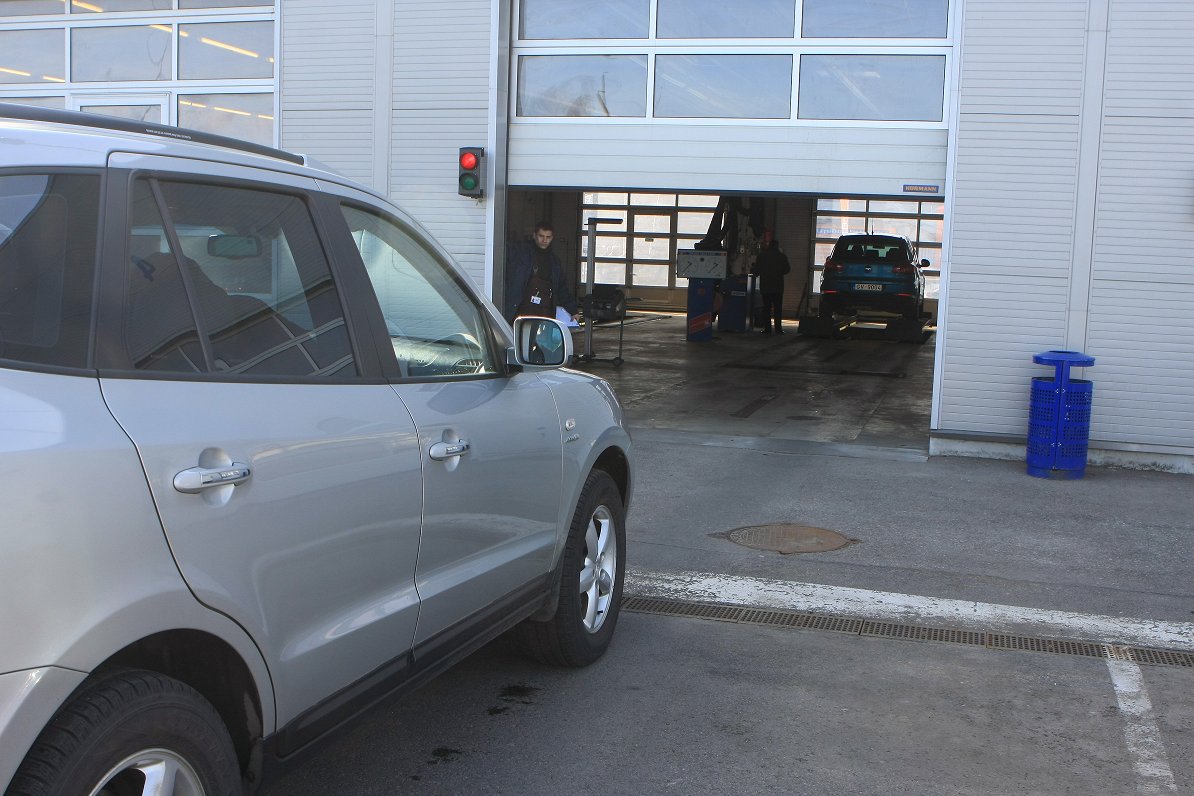The council believes that automobile repair shops may also perform vehicle inspections, which is currently a service directly managed by the Road Traffic Safety Directorate.
Furthermore, the body claims Latvia may be violating EU rules by imposing regulations that stall market development.
According to the council, the Road Traffic Safety Directorate, which has the right to perform vehicle inspection in Latvia, has accredited four more companies, which all fully or partly belong to the directorate, to provide vehicle inspection services. The Competition Council believes that these companies and the directorate have a dominant market position.
According to the Competition Council, which has also analyzed the situation in other countries, the vehicle inspection system in Latvia and restrictions imposed by the Road Traffic Safety Directorate are disproportionate, damaging to consumers, and preventing the private sector from entering the market.
The Road Traffic Safety Directorate's operations are based on the Transport Ministry's guidelines, which include disproportionate requirements and make it practically impossible for new players to enter the market. If a decision is made to open a new inspection station, the directorate and the companies it has accredited will have the advantage, and not all market players will have equal opportunities.
Furthermore, the accredited companies do not compete with one another as each operates in a specific region where they provide their services. This constitutes one of the worst violations of competition rules - market division, the Competition Council points out.
"Only free market competition ensures that consumers can receive competitive prices determined by the actual market situation. In Latvia's regulated market, vehicle inspection costs for consumers have increased 50 percent to 60 percent over the past ten years. These costs are among the highest in the EU, and the highest in the Baltics," explains the Competition Council.
The Competition Council proposes deregulating the vehicle inspection market. It believes that the state should continue to perform the accreditation and supervision function, while vehicle inspection services should be provided by the private sector - repair shops. Contrary to the popular belief that entrusting private repair shops with vehicle inspection could impair traffic safety, the Competition Council has concluded, based on other EU member countries' experience, that this is not so.
In order for Latvia to meet the relevant EU requirements and ensure fair competition, the Competition Council has sent a letter to the Transport Ministry, asking that the ministry by October 1 develop an action plan to solve the problems identified by the council.
Transport Ministry says report misleading
Later on July 19 Jānis Liepiņš, a rep of the Road Traffic Safety Directorate, said that the aforementioned analysis of the vehicle inspection market in Latvia includes several incorrect and misleading conclusions.
He declined to comment the Competition Council's report in detail as the Road Traffic Safety Directorate had not yet acquainted itself with the document, but said that several conclusions in the report were apparently wrong.
For instance, the Competition Council's economists have done an incorrect analysis of vehicle inspection prices in the European Union. According to the report, the cost of vehicle inspection in Latvia is higher than the EU average, while in actual fact the prices in Latvia are the fourth lowest in the EU, said Liepins.
He also rejected the Competition Council's reproaches concerning accessibility of vehicle inspection stations. The council says in the report that there is just one inspection station in Riga, while in other, deregulated markets, the number would be twenty times higher. The vehicle inspection station in Riga has 12 lanes, while most stations in other EU countries have just one lane, Liepins pointed out.
In addition, the Competition Council's report fails to mention that, in accordance with Latvia's regulations, the network of vehicle inspection stations in Latvia has been developed so that motorists would have to drive no more than 40 kilometers to the nearest station.
Liepins also criticized the Competition Council's suggestion to allow repair shops to provide vehicle inspection services. In Liepins' words, there is no such system in any other EU member country except Netherlands.






























